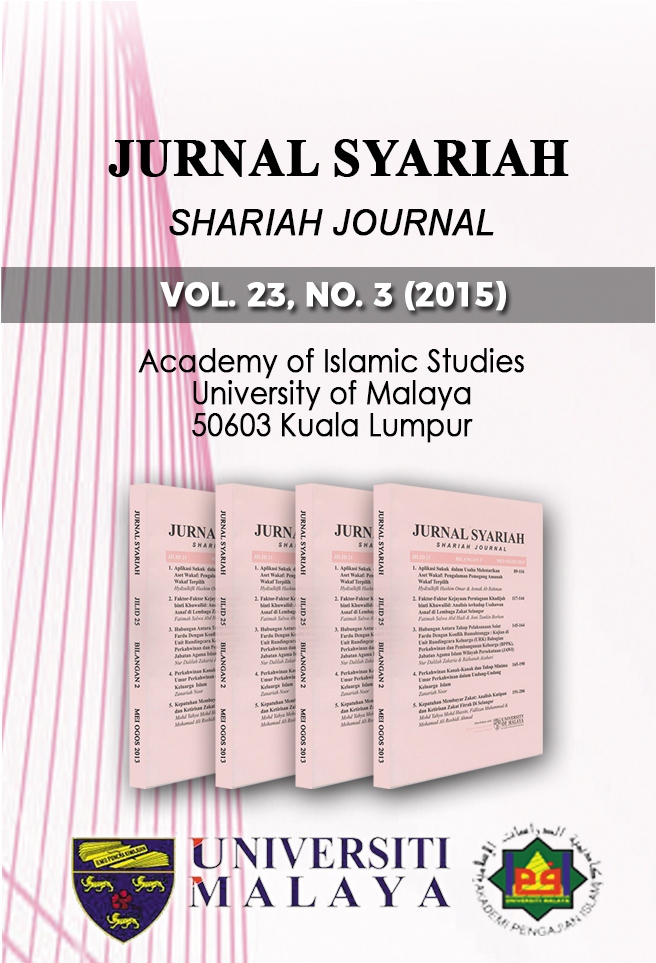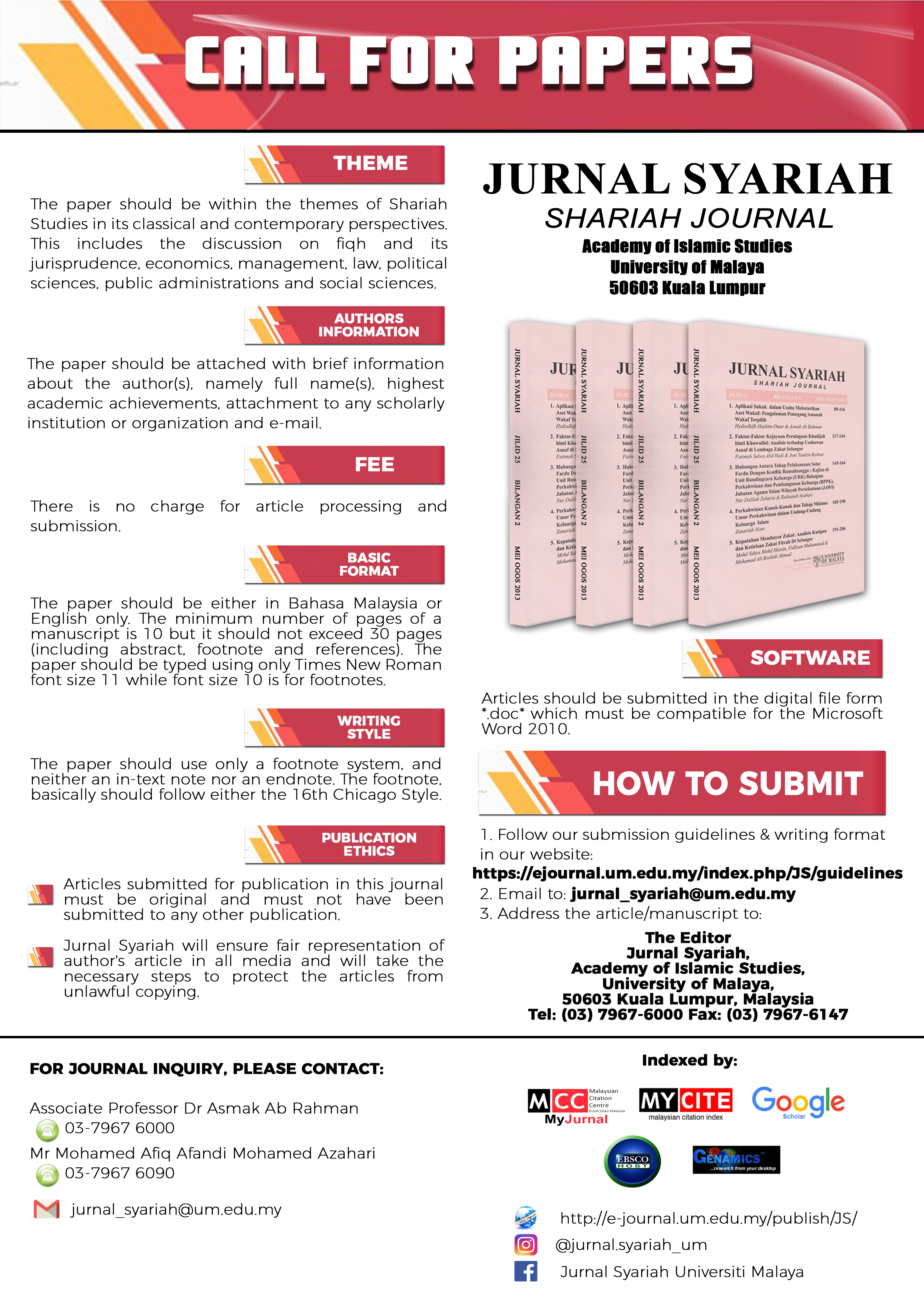SYARAT KESIHATAN FIZIKAL BAGI KETUA NEGARA: ANALISIS HUKUM DAN REALITI POLITIK DI INDONESIA
Physical Health Requirement for the Head of A State: Legal Analysis and Political Reality in Indonesia
DOI:
https://doi.org/10.22452/js.vol23no3.2Keywords:
physical health requirement, head of state, political ijtihÄd, IndonesiaAbstract
This article is a qualitative study using library research and related documents, analyzed using the descriptive method. The study found that the majority of scholars list the physical health requirements for a head of state as salāmah al-hawās wa al-a’dā (mentally and physically healthy) or kifāyah al-ajsām (perfect body). This indicates their agreement on the importance of health requirements for candidates for head of state. However, some scholars do not list health as a requirement, considering it unimportant, because what is important is that the head of state has leadership capability and intellectual intelligence. Therefore, health is considered by some scholars to be a requirement whose suitability is disputed while some scholars put it as a requirement for completeness. This difference in opinion has created an opportunity to review the situation and obtain the best opinion based on the needs and realities of local politics. In the current context, a health requirement has become a necessity in some countries, imposed by an Act or the Constitution, for example The Republic of Indonesia under Law No. 23 of the Presidential Election 2003, Article 6 (d).3 Therefore, this article aims to analyse the views of scholars, current views and the provisions for policy implementation in Indonesia to produce appropriate physical health requirements for the head of state which can be applied without violating Islamic law.
Downloads
Downloads
Published
How to Cite
Issue
Section
License
Copyright (c) 2015 Jurnal Syariah

This work is licensed under a Creative Commons Attribution-NonCommercial 4.0 International License.
COPYRIGHT: All rights reserved. Not allowed to be reproduced any part of articles and contents of this journal in any form or by any way, whether electronic, mechanical, photocopying, recording or otherwise without permission in writing from the Chief Editor, Jurnal Syariah.



















